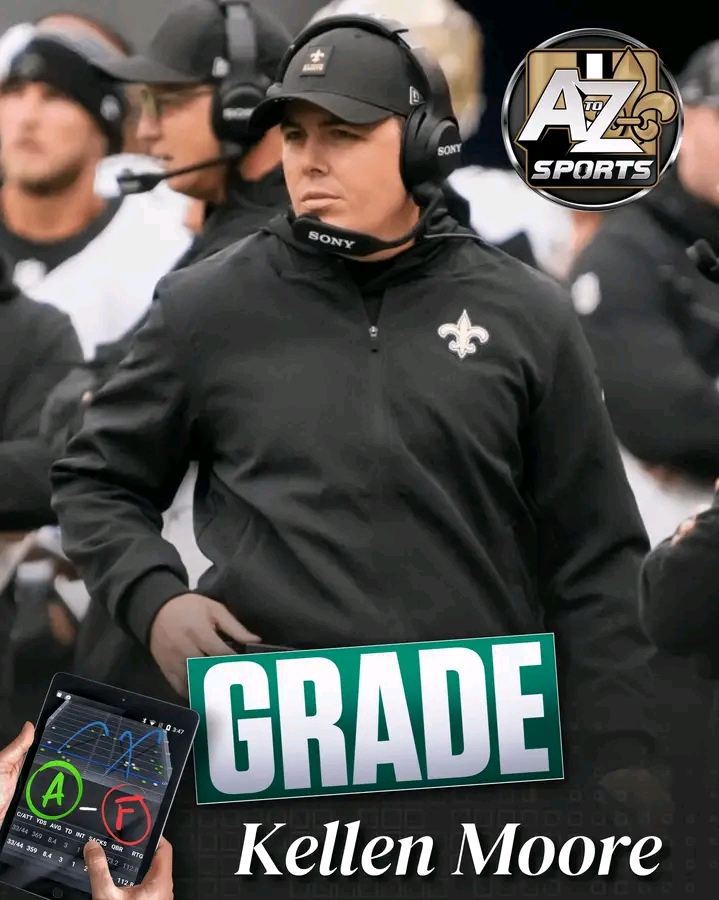The Case for a Low Grade — But Not a Failing One
After a 1–6 start, it’s impossible to grade Kellen Moore’s first season as an NFL head coach with unbridled optimism. Yet to doom him as a failure would be equally premature. Let’s dive in: what grade should we assign, and why?
The Case for a Low Grade — But Not a Failing One
At face value, a 1–6 record screams trouble. New Orleans is off to its worst start in decades, and expectations—even if tempered—are being tested. The mistakes have piled up: in his debut, the Saints racked up 13 penalties (including seven on offense under Moore’s purview) that swung momentum and field position away from them. Clock management miscues, questionable game‑management decisions, and a roster burdened with injuries have all compounded the burden on Moore. The internal margin for error in the NFL is razor thin, and Moore has already chipped into that margin too often.
If this were a first or second season for a coach with minimal expectations, we might be more forgiving. But Moore was brought in with the hope of a reboot: to stabilize a franchise that went 5–12 last season and to restore hope to a fan base. The scoreboard isn’t just a reflection of early adversity—it also reveals how often New Orleans has failed to deliver in close moments.
So if pressed, I’d give him a C‑ at this point. Not so low as to imply he’s irredeemable, but low enough to recognize that the early returns are sobering.
Why That Grade Is Generous (or Fair)
Even among the losses, there have been flashes of hope. Let’s give credit where it’s due:
Competitiveness in many games. Despite the lopsided scoreboard at times, the Saints have often been in the mix late. They’ve lost some close ones by narrow margins, indicating that the team isn’t being blown out every week.
First win as a breakthrough. The 26–14 win over the Giants was a moment of relief, a way to validate to the players and fan base that things aren’t hopeless.
Culture and consistency. Moore’s staff and assistants praise his steady, level‑headed demeanor. In a tumultuous environment, that kind of consistency can matter.
Rookie head coach adjusting. Coaching and play-calling at the NFL level, particularly under pressure and roster constraints, is a steep climb—even for someone talented. Some of the early missteps (timeout usage, penalty discipline, fourth-down choices) feel like the birth pains of adjusting to being “the whole package,” not just the offensive architect.
In other words: he deserves criticism, but also a margin of patience.
Path Forward: What He Must Do
To redeem the grade and avoid a downward spiral, Moore has to address several urgent items:
1. Cut down penalties and mental errors. Self-inflicted wounds thus far have been a recurring theme—he must tighten that.
2. Improve close-game decision-making. Fourth-down calls, timeout usage, situational aggressiveness need re-evaluation.
3. Maximize what he has. The Saints’ roster is flawed, injured, and under pressure. Moore must extract over performance from scheme, matchups, and player development.
4. **Leverage his early buy-in. He has already earned some goodwill in the locker room. He must nurture that trust through steady leadership.
5. Adaptability. Rigid schemes or unwillingness to evolve under pressure will get exposed.
Final Verdict: C‑(for now)
A C–feels about right. It acknowledges the failures and risks of a 1–6 start while leaving room for a course correction, especially if Moore can fix the discipline and decision-making that have hurt the team most.
If he climbs out of this hole, shows sharper coaching instincts, and the team grows together, the grade can improve. But the window for redemption is narrower in the NFL than most people realize.









